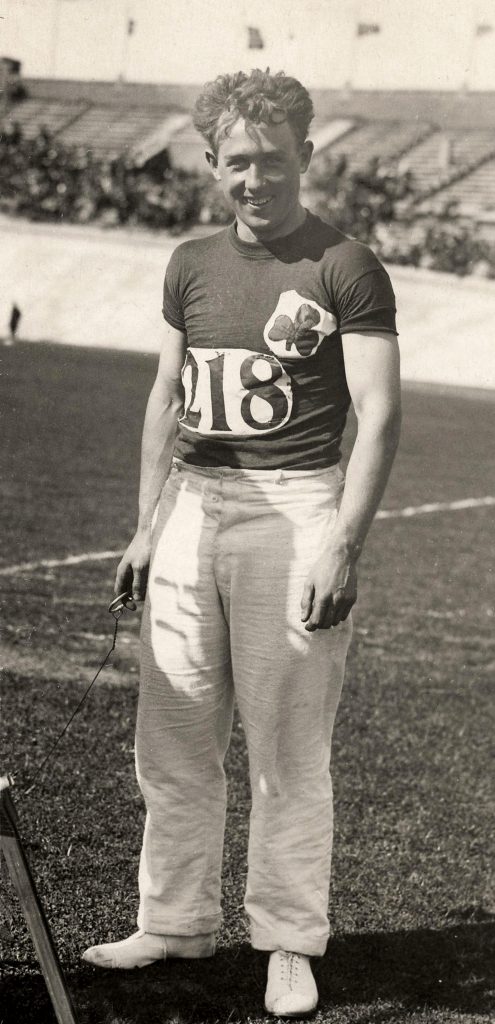ON JULY 30, 1928, a man from Co. Cork named Pat O'Callaghan made history by becoming Ireland's first ever Olympic Gold medal winner.
Little over six years on from the war of independence, the 1928 Amsterdam Olympics was just the second time Irish athletes were able to represent Ireland - the first being the Paris Olympics four years prior.
Between 1896 and 1920, Ireland's fastest and strongest competed as British athletes.
As such, O'Callaghan's victory in the men's hammer throw is one of the most significant moments in Irish sporting history.
Just 22-years-old at the time, O'Callaghan, together with his two brothers and fellow Irish Olympians, paid his own way to Amsterdam, forking out what little he had to catch the ferry over to mainland Europe for the Games.
Having barely squeezed through in the preliminary rounds, O'Callaghan began the final of the hammer throw poorly. His initial effort was marked at 155'9" - well short of his personal best of 162'6" - leaving him in third place, trailing Sweden's Ossian Skiöld, but ahead of Malcolm Nokes, the favourite from Great Britain.
Bizarrely, for his second throw, O'Callaghan politely asked Skiöld if he could use his hammer instead, and managed to record a whopping 168'7" with it, which put him in the lead, and a staggering 4' ahead of his closest rival.
 Pat O'Callaghan (Pic: @thisdayIrish - Twitter)
Pat O'Callaghan (Pic: @thisdayIrish - Twitter)The mammoth throw was enough win the event and secure Ireland's first ever medal at the Olympic Games. The fact that it was Gold made it even sweeter.
The podium presentation was a particularly emotional moment, as it was the first time the Irish tricolour had ever been flown at the Olympics.
But it certainly wouldn't be the last.
O'Callaghan won Gold again four years later during the 1932 Los Angeles Olympics, again in the hammer throw. He was joined in the record books by Bob Tisdall, an Irish runner who secured the country's second Gold medal in the 400m hurdles just a few days prior.
Just seven Gold medals (at the time of writing) have been won by Irish athletes in the 89 years since, all of whom have O'Callaghan to thank for paving the way for them. None of this would have been possible without him.
Viewed as a kind of Irish Jesse Owens, O'Callaghan was a trailblazer and true role model for all those who followed in his footsteps.
While political disruption meant Ireland ending up not sending a team to the 1936 Games in Berlin - where Owens would famously win four Gold medals - O'Callaghan retired a national hero, and his career was celebrated and recognised across the nation for decades.
He passed away in 1991 at the age of 85.

